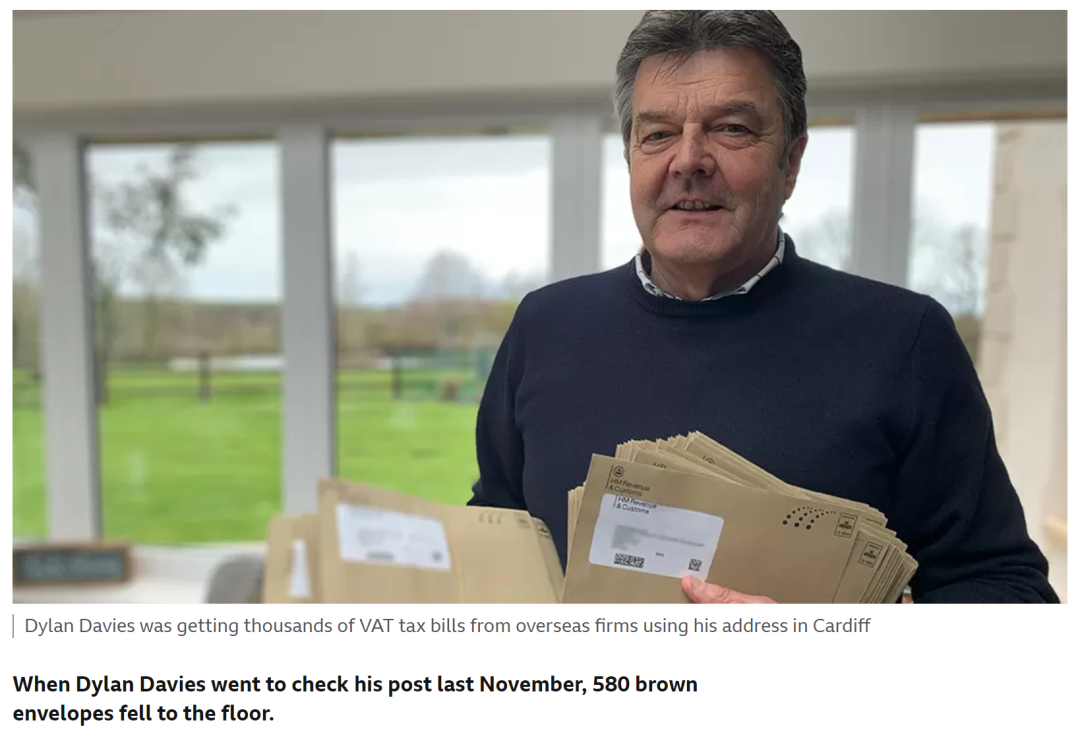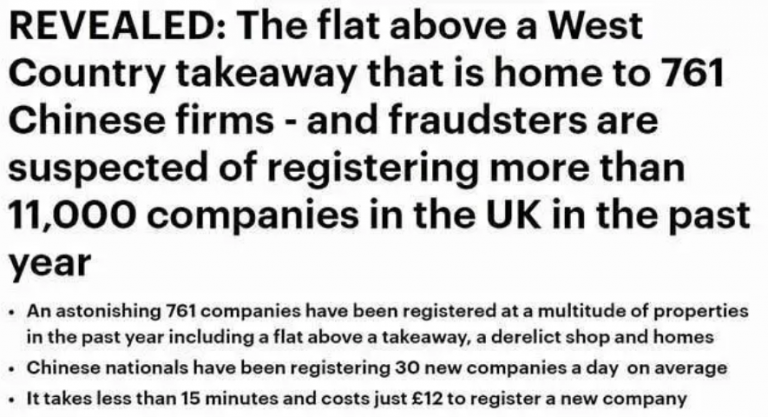YCD News – Some time ago, many sellers’ old Amazon accounts were audited by the platform to re-verify their identities, tracing the root cause of which is that Amazon has strengthened the monitoring of the authenticity of old accounts’ identity information in order to promote the compliance process. At present, there is no doubt that, with the continuous maturation and differentiation of the cross-border e-commerce industry, both the state and the platform, the compliance regulations for cross-border trade review are tightening. However, in such a situation, there are still some people who try to profit by exploiting the loopholes of cross-border trade regulations.
Tens of thousands of UK VAT suspected of address theft!
According to a recent BBC report, a British resident living in Cardiff, Wales, has been receiving tens of thousands of letters from HM Revenue & Customs (HMRC) demanding tax payments since November last year. As of April this year, the resident’s residential address had reportedly been used by 11,000 Chinese companies to register for VAT.

The resident said he was unaware of this and because he was concerned that the increasing amount would affect his personal assets, he brought the situation to the attention of the British television program X-Ray, which drew the attention of the British community and HM Revenue & Customs (HMRC).
The HMRC investigation revealed that 70% of the 11,000 Chinese companies were cross-border e-commerce companies, of which 2,356 were in tax arrears.
In this regard, some economic crime experts analyzed that after the UK tax reform, as e-commerce platforms opened withholding services for overseas companies’ VAT, some sellers or other organizations wanted to use registered UK local addresses to bypass the platform’s withholding payments in order to achieve the purpose of tax evasion.
Many other economic experts also believe that the theft of addresses in this incident is likely to be suspected of tax fraud and other criminal activities.
At present, HMRC has not found any evidence of fraud or fraudulent intent. However, HMRC has said that it is reviewing its operational processes for managing large numbers of address changes and will be tightening its scrutiny of overseas companies registering for VAT in the future.
And once the incident came to light, it also caused a lot of debate in domestic cross-border circles: “Are these local numbers in trouble, or is a service provider violating the law by using a large number of the same local address to register a foreign account for VAT?If it’s the latter, then maybe many domestic sellers are out of luck …… “”I heard that last month has been in trouble, a lot of accounts were blocked ……”” “Still have to comply with the operation, account security to earn money in the long run!”
From the above, if, as the industry speculates, it is due to the service provider’s violation of using the same local address to register the UK VAT, then there will be many sellers affected.
As of this writing, AMZ123 has not yet received news of any Chinese sellers being affected by the incident, but it is predictable that the incident has been widely reported in the UK media, with widespread impact, and that HM Revenue & Customs (HMRC) will further tighten its audit of tax compliance.
UK VAT policy scrutiny tightens!
YCD understands that as the VAT registration process in the UK becomes more complicated, many cross-border sellers are now looking for tax agents to register their VAT, but due to the uneven level of cross-border service providers, such as service providers not having the qualification to act as agents, resulting in sellers’ accounts being blocked; service providers using shell companies to help sellers register their local tax numbers, and other mines have emerged one after another.
In March last year, the British media reported the news that “some Chinese people allegedly used a system called ‘soft touch’ to register more than 11,000 shell companies in the UK”.
It was disclosed that many shell company addresses were used to register cross-border seller accounts. The purpose was also to exploit the loopholes of the UK VAT policy by registering companies in the UK mainland and then using them to register local accounts on cross-border e-commerce platforms to avoid the platform’s VAT withholding requirements.

In that incident, many cross-border sellers’ UK station accounts were tragically affected.
After the recent incident in which tens of thousands of British VATs were reported for alleged address theft, many sellers have believed that not only will HMRC further tighten its audit, but Amazon will also inevitably take action against the platform accounts of this group of companies.
In addition, according to sellers’ observation, before that, Amazon had also issued a relevant directive, requiring local accounts in the EU to also upload tax data and sales data. Although the United Kingdom has withdrawn from the EU, but according to the implementation of Amazon’s new policy enforcement, many sellers believe that the UK’s local accounts are likely to also soon begin to provide relevant data.
In general, with the changes in the tax policy of cross-border e-commerce platforms and the tightening of the platform withholding VAT policy, this kind of violation of registration by exploiting the loopholes in the rules is not a long-term solution after all, and compliant operation is the best policy to be invincible in the cross-border e-commerce industry.
